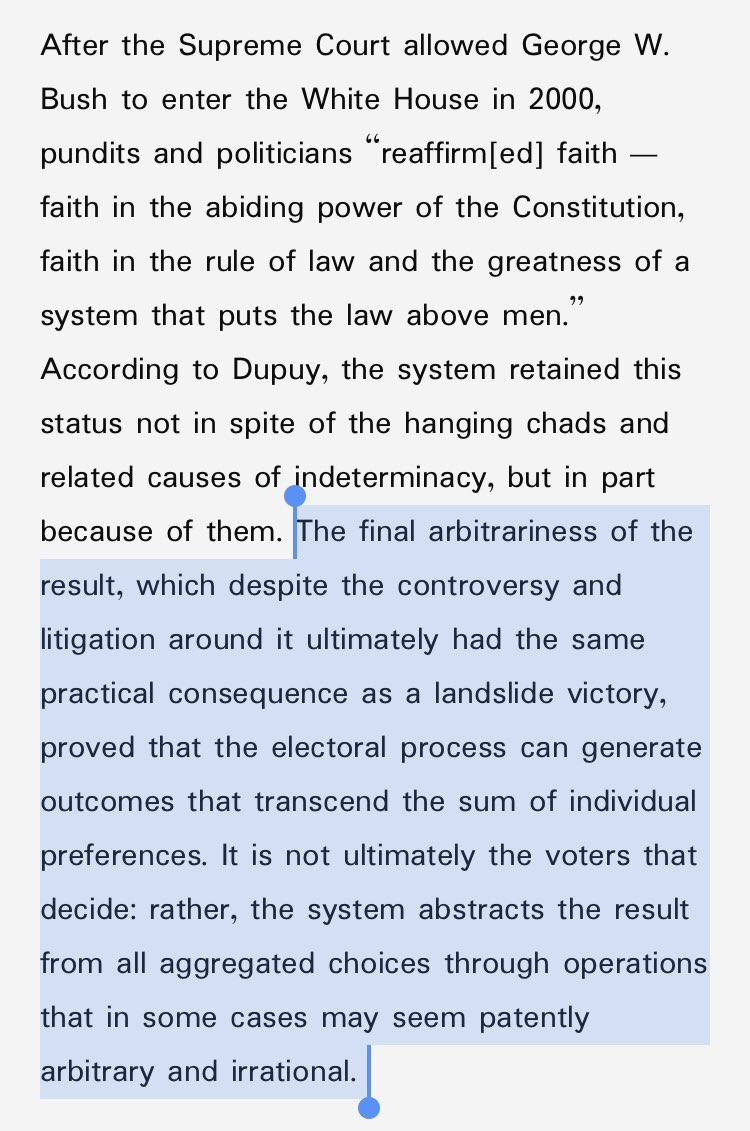I haven’t read the Time article yet, but recall that the Obama campaign was praised as slick and tech-savvy for using Facebook as a voter persuasion tool by many of the same outlets that later treated the Trump campaign’s use of Facebook as a terrifying brainwashing operation./1
Debates about election legitimacy tend to neglect the fact that there’s no real agreement on what would constitute a truly legitimate election. For example, many other countries ban almost all political advertising, which I have not seen anyone in either party pushing for here./2
Restrictive measures like voter ID have long been presented by one party as a way to legitimate elections, and by the other as something that delegitimates them. There’s no abstract basis for either position on this sort of issue—it’s largely a strategic question./3
The result is that, depending on the result, the workings of the system will seem arbitrary and unfair to some portion of the electorate at all times. But I argued here that this situation, rather than erode legitimacy, may paradoxically perpetuate it./4 https://im1776.com/2020/11/06/counting-votes-and-drawing-lots/
My central claim there, based on JP Dupuy’s analysis of the 2000 election, is that the arbitrariness and randomness generated by the conjunction of endless, uncertain factors is what enables the system to “generate transcendence.”/5
Some have disputed my conclusions, to which I say, the jury is still out and will be for a while. Anyone, including me, making momentous predictions about the long term impact of this election is jumping the gun. I’m mainly saying, things will be less different than we think./FIN

 Read on Twitter
Read on Twitter


